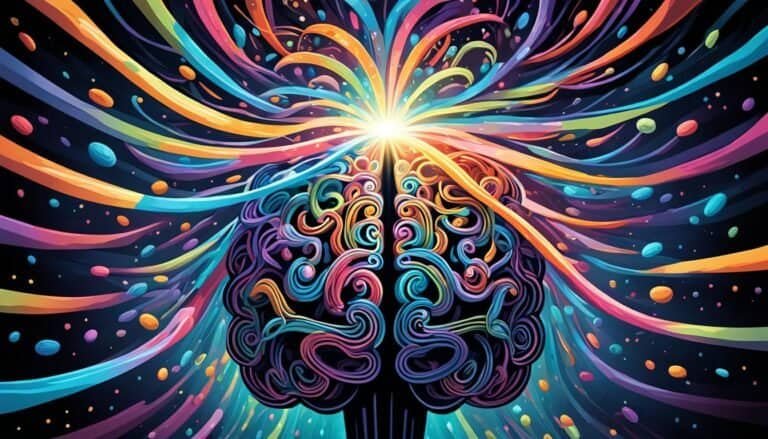The Psychology Behind Your Personality and Your Hobbies
Your personality traits play a significant role in shaping your choice of hobbies. Extraverts lean towards social activities, like team sports and group classes, while introverts prefer solitary pursuits that demand focus. Hobbies aren't just pastimes; they aid in skill development, boost self-esteem, and fuel personal growth. Your leisure preferences offer a glimpse into your values and beliefs, serving as channels for self-expression. Additionally, childhood experiences and social influences leave lasting imprints on your hobbies. Exploring this intricate connection reveals the essence of who you are and how you find fulfillment in life.
Key Takeaways
- Personality traits influence hobby choices and engagement.
- Hobbies provide emotional outlets and stress relief.
- Childhood experiences shape adult interests and behaviors.
- Social factors like family and friends impact hobby preferences.
- Hobbies enhance well-being through emotional fulfillment.
The Influence of Personality Traits
When exploring the influence of personality traits on hobbies, it becomes evident that individuals with extraverted tendencies are more likely to engage in social hobbies that involve interacting with others. Trait correlations play a significant role in shaping hobby choices. Extraverted individuals tend to seek out activities that allow them to be around people, such as team sports, group fitness classes, or volunteering opportunities. Their outgoing and sociable nature drives them towards leisure activities that involve socializing and collaboration.
On the other hand, introverted individuals might prefer solitary hobbies or activities that require deep concentration, such as painting, writing, or solo hiking. These preferences showcase how personality influences leisure activities. Introverts often find fulfillment in hobbies that allow them to recharge in solitude, reflecting their introspective and contemplative nature.
Understanding how personality traits align with hobby choices can provide valuable insights into how individuals seek enjoyment and relaxation. By recognizing these correlations, individuals can tailor their leisure pursuits to align with their inherent characteristics, ultimately enhancing their overall well-being and satisfaction.
Understanding Hobby Preferences
Understanding hobby preferences can offer valuable insights into individual interests and motivations. People engage in hobbies for various reasons, which can range from leisurely enjoyment to personal growth and skill development. Here are four key points to keep in mind when exploring hobby preferences:
- Hobby Diversity: Individuals often have diverse interests, leading them to engage in a wide range of hobbies. This diversity not only enriches their lives but also allows for exploration and self-discovery.
- Skill Development: Hobbies provide a platform for individuals to develop new skills or enhance existing ones. Engaging in activities that require skill-building can boost self-esteem and offer a sense of accomplishment.
- Leisure Preferences: Understanding leisure preferences can help individuals choose hobbies that align with their relaxation and enjoyment needs. Some may prefer solitary hobbies for introspection, while others may opt for social hobbies for connection.
- Interest Exploration: Hobbies allow individuals to explore new interests and passions outside of their daily routines. This exploration can lead to personal growth, creativity, and a broader perspective on life.
Psychological Motivations Behind Hobbies
When engaging in hobbies, you're driven by intrinsic rewards that come from the sheer enjoyment and satisfaction of the activity itself.
Additionally, hobbies can serve as a powerful emotional outlet, allowing you to channel and process your feelings in a healthy way.
Moreover, the hobbies you choose often reflect and shape your identity, providing a platform for self-expression and personal growth.
Intrinsic Hobby Rewards
Engaging in hobbies provides individuals with intrinsic rewards that stem from fulfilling psychological motivations. These internal drives are pivotal in shaping the satisfaction derived from hobbies. Here's how intrinsic hobby rewards influence your engagement:
- Sense of Competence: Mastering a hobby boosts self-esteem and confidence.
- Autonomy: Hobbies provide a sense of control, allowing you to make choices based on personal preferences.
- Connection to Identity: Engaging in hobbies that resonate with your values and interests reinforces your sense of self.
- Flow State: Immersing yourself in a hobby to the point of losing track of time can be deeply fulfilling and enjoyable.
These intrinsic rewards play a significant role in enhancing your overall well-being and enjoyment of hobbies.
Emotional Outlet Through Hobbies
Emotions intertwined with hobbies serve as a profound avenue for individuals to channel and express their inner feelings and psychological motivations. Engaging in hobbies provides an emotional release, allowing you to express emotions that might be challenging to articulate verbally.
Whether it's painting, writing, or gardening, hobbies offer a creative outlet for you to externalize your feelings and release pent-up emotions. Research suggests that participating in activities you enjoy can reduce stress and anxiety levels, promoting overall emotional well-being.
Identity Expression in Hobbies
Exploring the psychological motivations behind hobbies provides a window into how individuals express their identities through various leisure activities. Engaging in hobbies isn't just about passing the time; it's a way to showcase different facets of who you are.
Here's how identity expression plays a role in your choice of hobbies:
- Hobby Identity: Your hobbies can reflect your values, beliefs, and personality traits.
- Leisure Activities: The leisure activities you choose can communicate aspects of your identity to others.
- Self-Expression: Hobbies offer a platform for you to express yourself in ways that may not be possible in other aspects of your life.
- Community Connection: Participating in hobbies can help you connect with like-minded individuals who share similar values and interests.
Impact of Childhood Experiences
Your early memories play a pivotal role in shaping who you're as an adult. Childhood experiences have a significant impact on your personality development and the hobbies you're drawn to.
Understanding how these formative years influence your interests can provide valuable insights into your current behaviors and preferences.
Early Memories Influence
Early memories from childhood play a significant role in shaping an individual's personality and interests later in life. These memories act as memory triggers, influencing your preferences, fears, and behaviors. Childhood influences are powerful and can impact your hobbies and career choices. Here's how early memories influence your adult life:
- Emotional Attachment: Memories associated with strong emotions can shape your interests and relationships.
- Role Models: Impressions of significant figures during childhood can influence your career path.
- Traumatic Events: Negative childhood experiences can result in specific fears or aversions in adulthood.
- Positive Experiences: Happy memories often lead to hobbies or activities that bring joy in later life.
Understanding these influences can provide insight into your personality and hobbies.
Childhood Shaping Adult
Childhood experiences serve as foundational building blocks, shaping the core of your adult personality and influencing various aspects of your life. Early influences during your formative years can have a lasting impact on your personality traits and hobby preferences. Research suggests that positive childhood experiences, such as supportive relationships or exposure to diverse activities, can lead to increased confidence and openness in adulthood. Conversely, negative experiences like trauma or neglect can contribute to the development of insecurities or avoidance behaviors later in life. Understanding how your childhood has shaped you can provide valuable insights into your current interests and behaviors.
| Early Influences | Personality Traits | Hobby Preferences |
|---|---|---|
| Supportive relationships | Increased confidence | Outdoor activities |
| Exposure to diverse activities | Openness to new experiences | Creative pursuits |
| Traumatic events | Insecurities | Solitary hobbies |
Hobbies as Self-Expression
Engaging in hobbies can serve as a powerful means of self-expression, allowing individuals to convey their unique interests, values, and creativity through their chosen activities. Hobbies provide a platform for creative exploration and personal fulfillment. Here's why hobbies are a form of self-expression:
- Reflection of Personality: The hobbies you engage in often mirror aspects of your personality, whether it's through the choice of activity, the level of dedication, or the style of execution.
- Emotional Outlet: Hobbies can be a way to channel your emotions, allowing you to express feelings that may be challenging to articulate verbally.
- Showcasing Skills: Through hobbies, individuals can showcase their talents and abilities to the world, gaining recognition for their unique skills.
- Building Identity: Hobbies play a role in shaping your identity, helping you understand yourself better and communicate parts of your identity that mightn't be apparent in other aspects of your life.
Personality Development Through Hobbies
Personality development can be greatly influenced by the hobbies individuals choose to pursue, shaping various aspects of their character and behavior. Hobby exploration plays a significant role in this process, as the activities we engage in during our leisure time offer a unique avenue for personal growth. When you actively explore different hobbies, you expose yourself to new experiences, challenges, and perspectives. This exploration can lead to enhanced self-awareness, increased creativity, and improved problem-solving skills, all of which contribute to personality growth.
Engaging in diverse hobbies allows you to tap into different aspects of your personality. For example, someone who enjoys painting may find that their hobby provides a creative outlet for self-expression, leading to a greater sense of fulfillment and emotional well-being. On the other hand, individuals who prefer outdoor activities like hiking or gardening may develop qualities such as perseverance, patience, and a deeper connection with nature. By actively participating in a range of hobbies, you have the opportunity to cultivate a well-rounded personality that reflects your diverse interests and values.
Role of Social Factors
Exploring various hobbies not only shapes your personality but also exposes you to social factors that greatly influence your hobby choices and development. Social influences play a significant role in determining the hobbies you pursue. Here's how social factors impact your hobby decisions:
- Social Influences: Your family, friends, and community can introduce you to new hobbies, shaping your interests based on their preferences and activities.
- Peer Pressure: Peer pressure can influence your hobby selection, pushing you to engage in activities that are popular among your social circle, even if they don't align with your true interests.
- Social Validation: The approval and admiration you receive from others for your hobbies can reinforce your engagement in them, leading to continued participation.
- Social Support: Having a supportive social network that shares your hobbies can enhance your enjoyment and commitment to your chosen activities, fostering a sense of belonging and camaraderie.
Emotional Fulfillment in Hobbies
Emotional satisfaction derived from hobbies is a key factor in understanding the intrinsic motivators that drive individuals to engage in specific leisure activities. Engaging in hobbies that provide emotional fulfillment is closely linked to mental health. Research suggests that participating in activities that bring joy, satisfaction, and a sense of accomplishment can have a significant impact on one's overall well-being.
Creative expression is another significant aspect of emotional fulfillment in hobbies. Many individuals use their hobbies as a means of expressing themselves creatively, whether through art, writing, music, or other forms of self-expression. This creative outlet not only allows individuals to explore their artistic abilities but also serves as a way to process emotions and experiences.
Furthermore, hobbies that offer emotional fulfillment often act as a form of stress relief and relaxation. Engaging in activities that bring joy and satisfaction can help reduce anxiety levels and improve mood. Selecting hobbies that provide emotional fulfillment can play an important role in enhancing mental health and overall quality of life.
The Connection to Well-Being
Engaging in hobbies that foster emotional fulfillment has been consistently linked to improved well-being outcomes in various studies and research findings. When you dedicate time to activities that bring you joy and satisfaction, you're actively contributing to your overall mental health and well-being.
Here are some key ways in which hobbies can positively impact your well-being:
- Mental Health: Engaging in hobbies can help reduce symptoms of anxiety and depression, promoting better mental health outcomes.
- Stress Relief: Participating in hobbies that you enjoy can act as a form of stress relief, allowing you to unwind and relax after a long day.
- Self-Care: Hobbies provide an opportunity for self-care, allowing you to prioritize your own needs and well-being.
- Enhanced Well-Being: By engaging in fulfilling hobbies, you can experience an overall improvement in your well-being, leading to a happier and more balanced life.
Conclusion
To sum up, your personality plays a significant role in shaping your hobbies and interests. From introverted bookworms to thrill-seeking adventurers, each individual's unique traits influence the activities they're drawn to.
Understanding the psychological motivations behind your hobbies can provide insight into your inner workings and lead to personal growth. So, next time you find yourself diving into a new hobby, remember that it's not just a pastime – it's a window into your soul.








